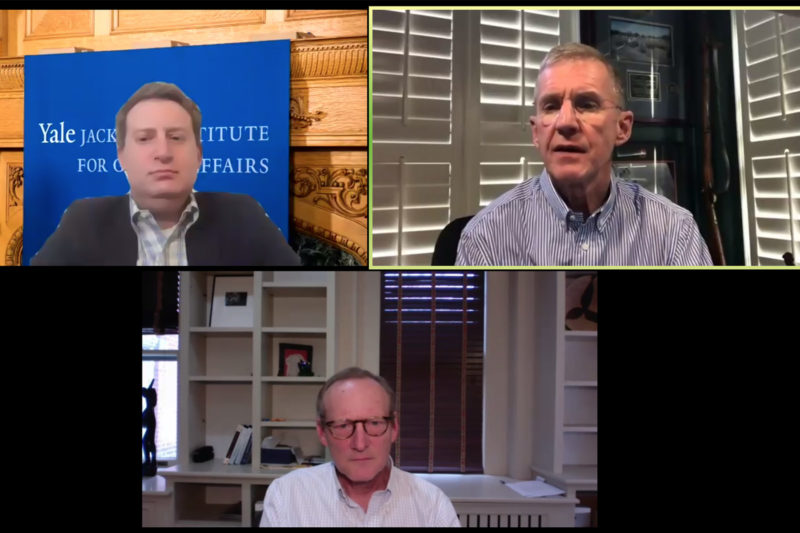On April 3, 2020, the Jackson Institute hosted the second installation of its Virtual Discussion Series on the COVID-19 crisis and its far-reaching impact.
The discussion, “COVID-19 & Global Affairs: Leadership in Crisis,” featured Jackson Senior Fellow Gen. Stan McChrystal and was moderated by deputy director for leadership programs, Ted Wittenstein, with an introduction with Jackson’s director, Jim Levinsohn.
McChrystal kicked off the conversation by emphasizing the significance of the pandemic.
“COVID-19 is going to change us dramatically. This is a big wake up call that we are globally connected and that globalization is here,’” McChrystal said.
The impacts of globalization, McChrystal explained, are seen clearly in both the fast spread of the virus across the world and COVID-19’s impact on all aspects of life. “For many parts of our lives, we are absolutely dependent upon other parts of the world. China is the one that rises to most consciousness. Most of our drugs are produced in China, all of our penicillin is produced in China,” he said.
McChrystal was also asked to reflect on the discipline that he teaches at the Jackson Institute—leadership. “During a time like this, what sort of leaders do we need? What sort of leaders do we want?”
McChrystal identified the ideal leader in a crisis as someone who is honest, competent, committed, and inspirational with a clearly directed plan that they are able to deliver to fruition. “I want that leader to remind me that I’m supposed to be a bigger person that I might want to be in that moment,” he said.
McChrystal also emphasized the need for coordinated action from the federal government. “There needs to be at the national level, the equivalent of a fusion cell… when I say fusion cells I mean entities that bring in different capabilities and expertise from FEMA to state government,” he said.
McChrystal fielded questions from the 280-person (virtual) audience on a variety of subjects, including what the United States can learn from global leadership; social cohesion during a crisis like COVID-19; the role of the military; and the far-reaching impact of the pandemic on the business sector.
If you missed the live discussion, you can watch the recording here.
